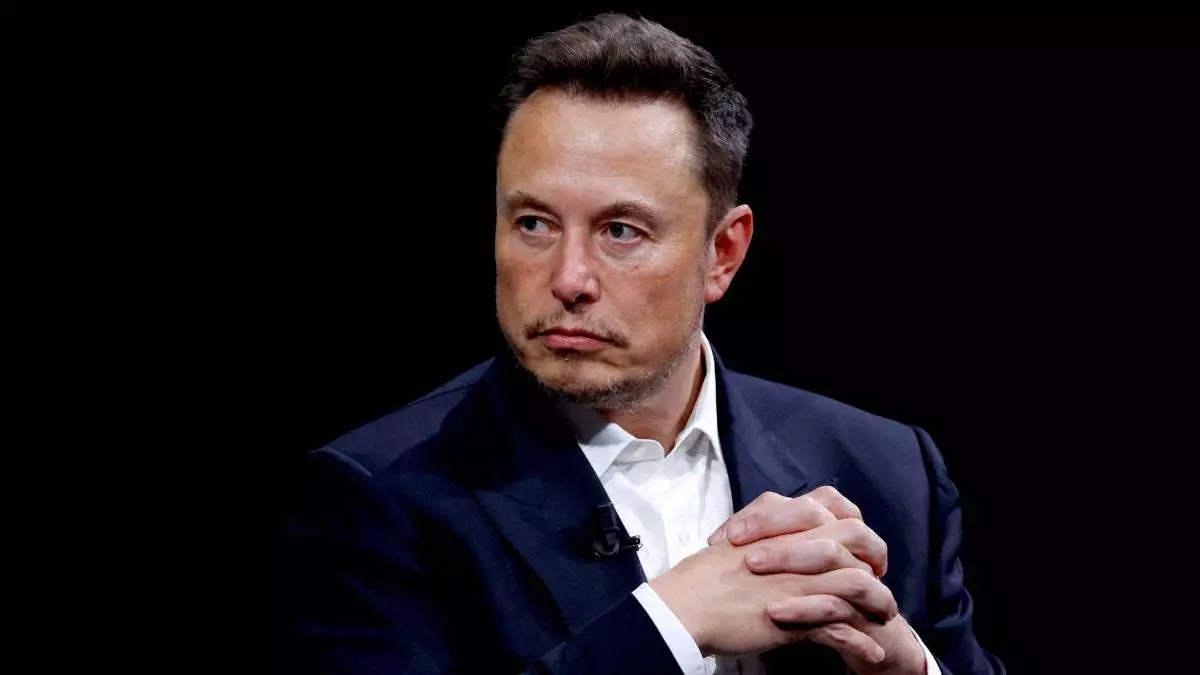The ongoing relationship between high-profile entrepreneurs and regulatory bodies has always been fraught with tension, nowhere more so than in the relationship between Elon Musk and the U.S. Securities and Exchange Commission (SEC). Following Musk’s noncompliance with a court order mandating his testimony regarding his acquisition of Twitter, the SEC has announced plans to pursue sanctions against the billionaire. This recent development underscores the complexities of corporate governance and the role of regulatory enforcement in maintaining market integrity.
In a substantive filing submitted to a federal court in San Francisco, the SEC has taken a strong stance against Musk. They are seeking an order to compel Musk to justify his absence from a scheduled testimony on September 10. The regulator’s outrage stems from the fact that Musk opted to communicate his inability to attend merely three hours before the court-mandated appearance. Instead of complying, Musk attended the launch of SpaceX’s Polaris Dawn mission in Cape Canaveral, a decision that the SEC suggests was planned well in advance. Given Musk’s dual role as a tech innovator and CEO of multiple influential companies, the implication is that he was acutely aware of the timing of the launch, thereby undermining his claims of an “emergency.”
The SEC argues that such behavior points to a form of “gamesmanship,” a term used by SEC lawyer Robin Andrews to describe actions perceived as manipulative or delaying. The implication is clear: Musk’s conduct undermines the integrity of legal proceedings. The question arises, however, about whether this legal wrestling is typical of high-stakes business dealings, or if Musk is uniquely culpable of evasion.
On the other side, Elon Musk’s attorney has characterized the SEC’s motion for sanctions as excessive, arguing that Musk’s obligation to oversee the SpaceX mission was not only crucial but inherently risky for the astronauts involved. Alex Spiro contends that Musk’s absence was not a result of neglect but rather an unavoidable “emergency” that Musk did not create. This invokes a discussion on the boundaries of personal responsibility versus professional obligation in high-stakes situations. Musk’s camp has also announced the rescheduling of the testimony for October 3. The SEC, however, remains skeptical, stating in their filing that Musk’s history of noncompliance raises concerns about his commitment to the upcoming date.
Spiro’s defense strategy introduces the notion of “public service” into the dialogue. By framing Musk’s obligations to SpaceX as not only paramount for corporate interests but aligned with broader technological advancement, it paints Musk as a dedicated leader faced with a dilemma. Yet, this assertion might also raise eyebrows about Musk’s priorities, particularly in the eyes of various stakeholders, including Twitter shareholders who feel sidelined by the prolonged ambiguity surrounding Musk’s stock disclosures.
The backdrop of this legal confrontation sheds light on the intricate dance between innovation and regulation. Musk’s history of conflict with the SEC—most notably, a previous lawsuit stemming from his 2018 tweets about taking Tesla private—further complicates the current situation. He eventually settled that case, agreeing to pay a $20 million fine while relinquishing some control over his communications regarding Tesla. Such a history of tension raises broader questions about whether certain individuals, particularly those with substantial influence and wealth, feel they operate above regulatory scrutiny.
Moreover, the apparent delay in Musk’s disclosure of his Twitter stock ownership—a breach of securities laws requiring timely reporting—has led to public criticism. By waiting to confirm his 9.2% stake until after surpassing a critical threshold, Musk has introduced uncertainties for investors, which dilutes trust in market operations. His assertion of a “misunderstanding” of SEC disclosure requirements seems insufficient when measured against the legal obligations every investor faces.
The looming sanctions against Elon Musk represent not just a personal legal challenge but a pivotal moment that exposes the frictions between innovation and regulation. As the October testimony date approaches, stakeholders across industries will undoubtedly watch closely, concerned with the implications for corporate governance and market integrity. Musk’s unpredictable nature is likely to keep this saga in the public eye, and how he navigates this impending legal confrontation may yield lessons for both founders and regulators in the digital age.


Leave a Reply